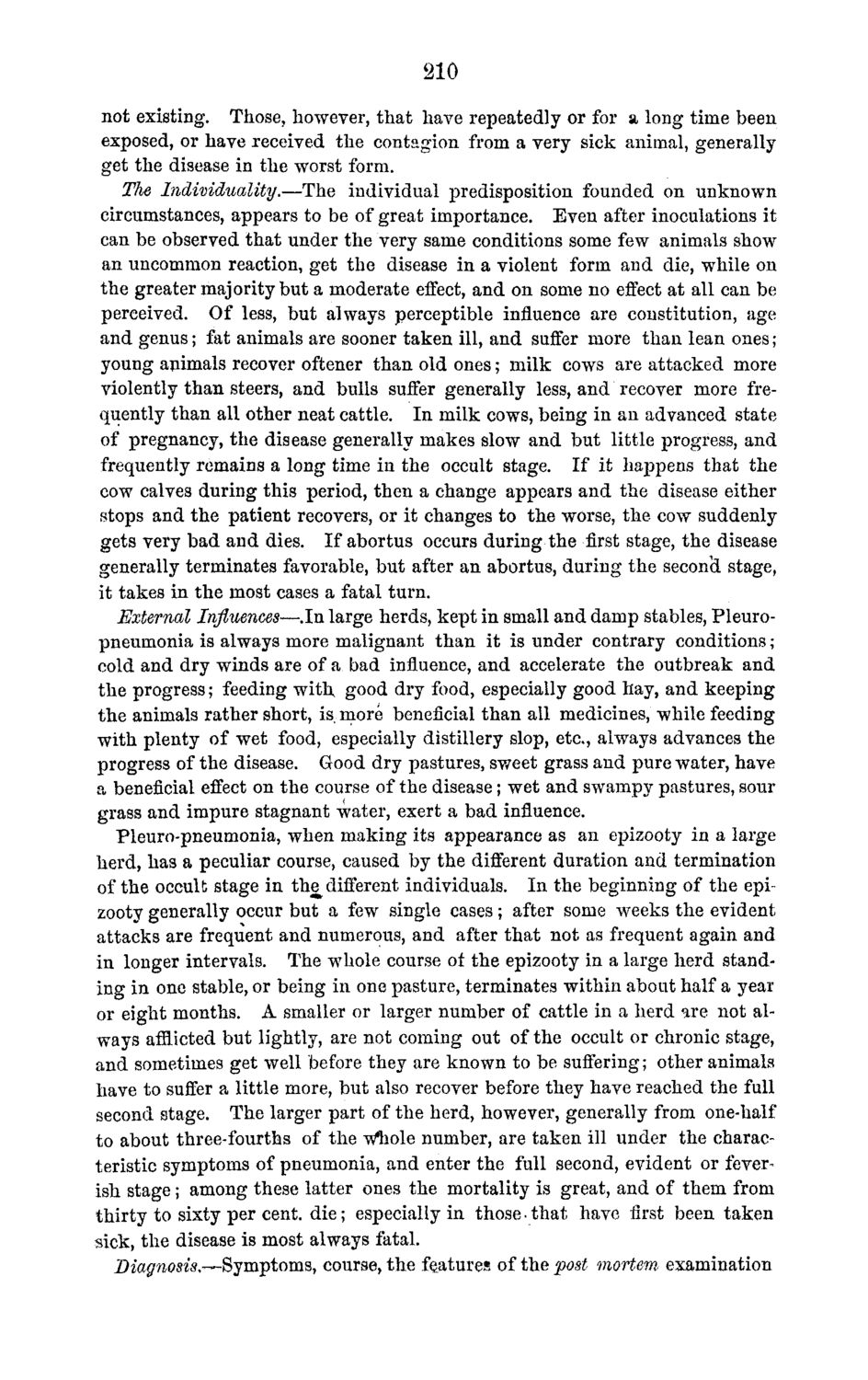| |
| |
Caption: Board of Trustees Minutes - 1870
This is a reduced-resolution page image for fast online browsing.

EXTRACTED TEXT FROM PAGE:
210 not existing. Those, however, that have repeatedly or for a long time been exposed, or have received the contagion from a very sick animal, generally get the disease in the worst form. The Individuality.—The individual predisposition founded on unknown circumstances, appears to be of great importance. Even after inoculations it can be observed that under the very same conditions some few animals show an uncommon reaction, get the disease in a violent form and die, while on the greater majority but a moderate effect, and on some no effect at all can be perceived. Of less, but always perceptible influence are constitution, age and genus; fat animals are sooner taken ill, and suffer more than lean ones; young animals recover oftener than old ones; milk cows are attacked more violently than steers, and bulls suffer generally less, and recover more frequently than all other neat cattle. In milk cows, being in an advanced state of pregnancy, the disease generally makes slow and but little progress, and frequently remains a long time in the occult stage. If it happens that the cow calves during this period, then a change appears and the disease either stops and the patient recovers, or it changes to the worse, the cow suddenly gets very bad and dies. If abortus occurs during the first stage, the disease generally terminates favorable, but after an abortus, during the seconbl stage, it takes in the most cases a fatal turn. External Influences—.In large herds, kept in small and damp stables, Pleuropneumonia is always more malignant than it is under contrary conditions ; cold and dry winds are of a bad influence, and accelerate the outbreak and the progress; feeding with good dry food, especially good hay, and keeping the animals rather short, is more beneficial than all medicines, while feeding with plenty of wet food, especially distillery slop, etc., always advances the progress of the disease. Good dry pastures, sweet grass and pure water, have a beneficial effect on the course of the disease; wet and swampy pastures, sour grass and impure stagnant water, exert a bad influence. Pleuro-pneumonia, when making its appearance as an epizooty in a large herd, has a peculiar course, caused by the different duration and termination of the occult stage in the^ different individuals. In the beginning of the epizooty generally occur but a few single cases; after some weeks the evident attacks are frequent and numerous, and after that not as frequent again and in longer intervals. The whole course ot the epizooty in a large herd standing in one stable, or being in one pasture, terminates within about half a year or eight months. A smaller or larger number of cattle in a herd are not always afflicted but lightly, are not coming out of the occult or chronic stage, and sometimes get well before they are known to be suffering; other animals have to suffer a little more, but also recover before they have reached the full second stage. The larger part of the herd, however, generally from one-half to about three-fourths of the wliole number, are taken ill under the characteristic symptoms of pneumonia, and enter the full second, evident or feverish stage; among these latter ones the mortality is great, and of them from thirty to sixty per cent, die; especially in those • that have first been taken sick, the disease is most always fatal. Diagnosis.—Symptoms, course, the features of the post mortem examination
| |